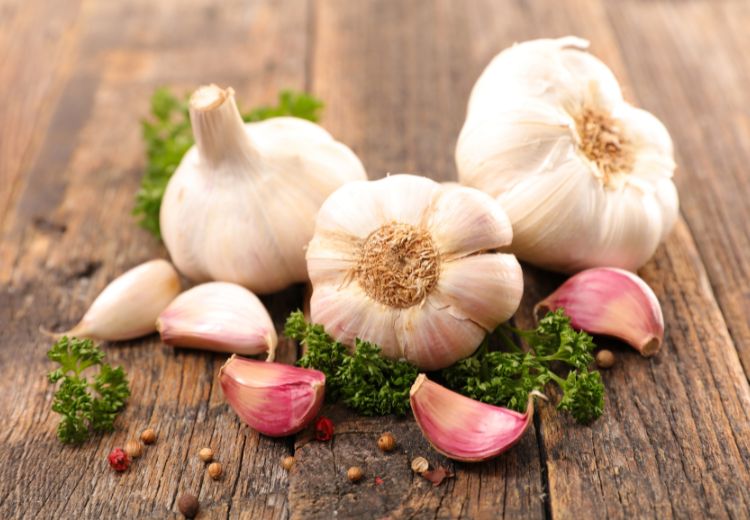The bitter truth about natural ACE inhibitors!
When it comes to managing blood pressure, angiotensin-converting enzyme (ACE) inhibitors are a common line of treatment. It is a type of medication often prescribed for high blood pressure and heart failure.
Although commercially produced ACE inhibitors are relatively safe and have minimal side effects, many people with high blood pressure try to look for natural alternatives.
While natural ACE inhibitors can work to some extent, their use is associated with certain risks that can seriously harm your health.
In this article, you will learn about the benefits and risks of natural ace inhibitors and why it is not advisable to use these natural substances as a substitute for real pharmaceuticals.
What are ACE inhibitors?
Angiotensin-converting enzyme (ACE) inhibitors are a class of medications primarily used to treat high blood pressure and congestive heart failure.
They work by blocking the enzyme that converts angiotensin I to angiotensin II, which is a substance that narrows blood vessels.
By inhibiting this conversion, ACE inhibitors effectively lower blood pressure, improving blood flow and reducing the workload on the heart.
The discovery of ACE inhibitors can be traced back to the 1950s when Brazilian scientists Sergio Ferreira and K. R. B. Merril noticed that the venom of the Brazilian pit viper (Bothrops jararaca) caused a drastic drop in blood pressure.
Through collaboration with researchers, including John Vane who would later win a Nobel Prize for his work in pharmacology, they eventually isolated a peptide in the venom which inhibited the angiotensin-converting enzyme.
This led to the development of the first ACE inhibitor, captopril, by scientists at Squibb (now Bristol-Myers Squibb) in the 1970s.

The active substance of ACE inhibitors was first synthesized from a snake venom
Their pioneering work has since paved the way for various ACE inhibitors used today in managing hypertension and heart failure.
Following the natural blueprint provided by the Bothrops jararaca venom, scientists have synthesized a range of ACE inhibitors that offer improved therapeutic qualities over captopril.
These synthetic ACE inhibitors, such as enalapril, lisinopril, and ramipril, are designed to have longer half-lives, increased bioavailability, and fewer side effects.
The most commonly prescribed ACE inhibitors include names such as lisinopril, enalapril, ramipril, and benazepril, among others.
Lisinopril, in particular, is frequently used due to its long half-life, allowing for once-daily dosing, which aids in patient compliance.
Enalapril has been shown to have beneficial effects on survival rates among patients with symptomatic heart failure, thus being a crucial medication in cardiac care.
Ramipril is often recognized for its role in reducing various cardiovascular problems in patients at high risk for heart attacks or strokes.
Benazepril, like others in its class, is effective in treating hypertension and improving survival after heart attacks.
Each of these ACE inhibitors has been extensively studied and remains a cornerstone in the management of hypertension and heart failure.
What are natural ACE inhibitors?
Natural ACE inhibitors are compounds found in certain foods and supplements that possess the ability to inhibit the ACE enzyme, mimicking the effects of pharmaceutical ACE inhibitors.
This could mean that they might offer similar benefits to their prescription counterparts.
They include nutrients like peptides, polyphenols, and alkaloids found in foods such as beans (legumes), some fruit, and vegetables.
Examples of these natural ACE inhibitors include:
- Lentils and Chickpeas: lentils may offer natural ACE inhibitory effects, which are crucial for managing hypertension. These legumes contain bioactive peptides that can mimic the actions of pharmaceutical ACE inhibitors by decreasing the activity of the angiotensin-converting enzyme, thus relaxing blood vessels and reducing blood pressure.
- Green Tea and Red Grapes: recent studies have illuminated the potential of red grapes in playing a role similar to ACE inhibitors, showcasing their beneficial properties in cardiovascular health management. Packed with antioxidants, including resveratrol and flavonoids, red grapes can contribute to reducing hypertension and improving heart function, much like ACE inhibitory medications.
- Garlic: allicin, a sulfur-containing compound found in garlic, emerges as the primary agent behind its health benefits. When garlic is chopped or crushed, an enzyme called alliinase converts alliin, a natural substance within the garlic, into allicin. This compound has been associated with various medicinal properties, including the ability to help manage hypertension. Allicin is believed to function by blocking the ACE enzyme, which in turn assists in the relaxation of blood vessels, potentially lowering blood pressure. Consistent with the standards of scientific inquiry, the effects of allicin as a natural ACE inhibitor are being rigorously examined with the intent to understand its mechanisms and long-term effects on cardiovascular health.
These natural compounds have led to a growing interest in their potential applications and have even spawned health fads and diets focused on consuming these foods.
Do natural ACE inhibitors really work?
While some foods may contain phytochemicals that can act in a similar way as pharmaceutical ACE inhibitors it's important to note that the evidence supporting the blood-pressure-lowering effects of natural ACE inhibitors is not as robust or consistent as it is for their medicinal counterparts.
What is more, the effect of natural substances on lowering blood pressure is usually quite small, and one would have to eat huge amounts of foods containing these substances for the drop in blood pressure to be measurable and significant.
An analysis of studies on the antihypertensive effects of allicin suggests that regular consumption of garlic helps lower systolic blood pressure by less than 4 mm Hg, which is very low compared to synthetic ACE inhibitors (1).
Similarly, a study that examined the blood pressure-lowering effects of resveratrol found that high doses of resveratrol were required to produce statistically significant reductions in blood pressure (2).
If we wanted to achieve the same effect as commercially produced ACE inhibitors, we would have to eat huge amounts of red wine grapes every day, which is neither possible nor healthy.
The best approach for consumers is to stay informed, stay patient, and consult a doctor before making any drastic changes to their health routines.
While natural alternatives could complement treatment, they shouldn't replace medically prescribed ACE inhibitors!
Risks associated with use of natural ACE inhibitors
While the notion of natural ACE inhibitors can be appealing, it's critical to consider the potential risks associated with their use.
These natural substances are not regulated with the same stringency as prescription medications, leading to inconsistencies in potency and purity.
Without standardized dosing, users may consume too much or too little, resulting in ineffectiveness or, conversely, harmful effects.

Garlic contains allicin, which can act as a natural ACE inhibitor
Unsuspecting interactions with other natural supplements or over-the-counter medications can pose additional risks, sometimes even leading to adverse reactions.
Moreover, because the safety profiles of natural ACE inhibitors are not as extensively documented as their pharmaceutical counterparts, individuals may unwittingly subject themselves to unknown long-term health effects.
Always consult with a healthcare provider before adding such substances to your regimen to avoid unforeseen complications.
Should you take natural ACE inhibitors?
Deciding whether to take natural ACE inhibitors is not something to be taken lightly.
Given the lack of regulation and standardized dosing compared to pharmaceuticals, it is crucial to consider the integrity and reliability of the sources when it comes to natural supplements.
The takeaway
Lowering blood pressure can reduce the risk of stroke and heart attack, making this an area of research of high public health interest.
It might be tempting to self-medicate with large quantities of 'healthy' foods, but excessive consumption or interactions with other medications could pose significant risks. Moreover, the long-term effects of a high-natural-ACE-inhibitor diet are not fully understood.
It is important to remember that food should not be seen as a replacement for medication but rather as a supplement. All changes to health regimens should be made under the supervision of a healthcare professional.
If you are considering natural ACE inhibitors as a part of your health regimen, it is vital to have a detailed discussion with your healthcare provider to weigh the potential benefits against the risks and to determine if they are appropriate for your particular health situation.
| Written by: | Michal Vilímovský (EN) |
|---|---|
| Education: | Physician |
| Image resources: | Canva.com |
| Published: | February 4, 2024 at 12:53 PM |
| Next scheduled update: | February 4, 2026 at 12:53 PM |
Get more articles like this in your inbox
Sign up for our daily mail and get the best evidence based health, nutrition and beauty articles on the web.


Ache in left arm that you should not ignore
Alkaline water dangers: why you should not drink it
How to Avoid Sleepiness While Studying?
23 Foods That Increase Leptin Sensitivity
Low dopamine (e.g. dopamine deficiency): causes, symptoms, diagnosis and treatment options
Swollen taste buds: the ultimate guide to causes, symptoms and treatment
Thin endometrial lining: causes, symptoms, diagnosis and treatment
Pimples inside nose: the complete guide
Holes in tonsils: definition, symptoms, treatment and prevention
How to deal with an ingrown hair cyst
Allegra vs. Zyrtec vs. Claritin
Allergy to penicillin and alternative antibiotics
How to get rid of phlegm (excessive mucus) in throat? Detailed guide to medical and home remedies, symptoms and causes
What causes stomach ache after meals?
Liver blood test results explained